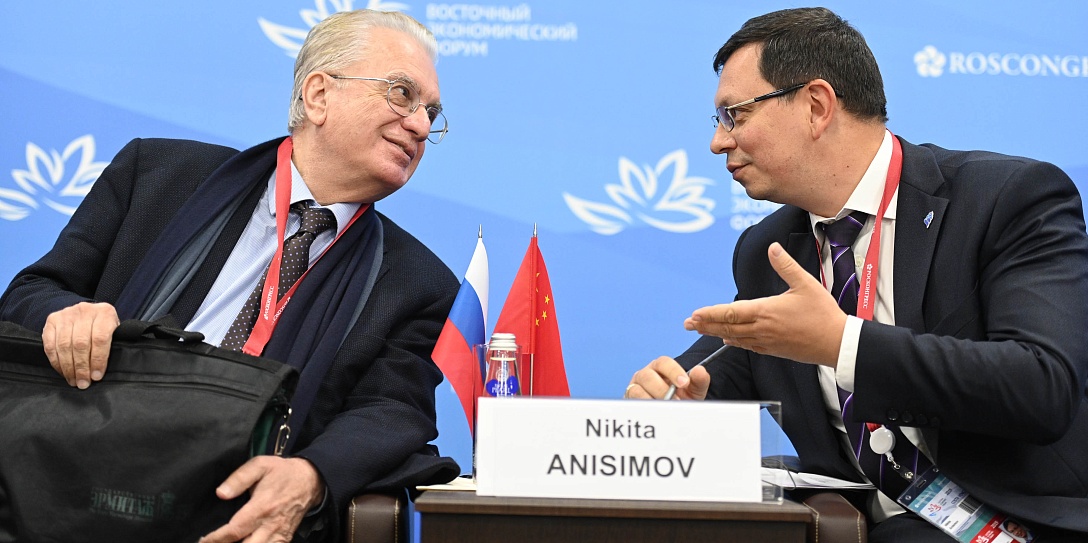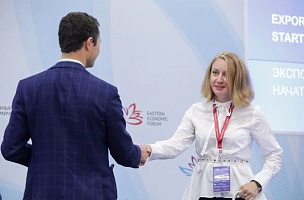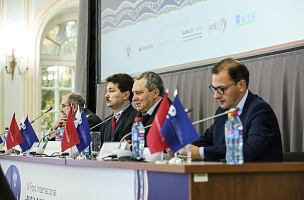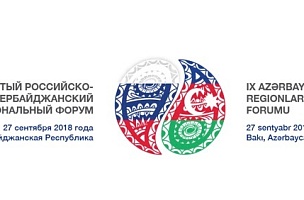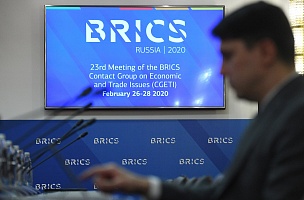On the opening
day of the 5th Eastern Economic Forum, the international academic
conference ‘Historical and Modern
Aspects of the Russia–China
Relations in the Light of the 70th Anniversary of the Founding of
the People’s Republic of China’ took place.
This is the biggest scientific event in Russia dedicated to the 70th
anniversary of the People’s Republic of
China. The conference, organized by the Roscongress Foundation, the Russian
Historical Society and the History of the Fatherland Foundation, was attended
by leading Russian and Chinese historians, heads of universities, research
institutes and research centres.
The official
opening ceremony was addressed by Nikita Anisimov, Rector of the Far Eastern
Federal University; Mikhail Piotrovsky, General Director of the State Hermitage
Museum and Academician of the Russian Academy of Sciences; Gao Xiang,
Vice-President of the Chinese Academy of Social Sciences and General Director
of the Chinese History Research Institute, and others.
Igor Pavlov,
Director of the Eastern Economic Forum and Deputy Director of the Roscongress
Foundation, noted that the anniversary of the founding of the People’s Republic of
China and the establishment of diplomatic relations between our countries
coincide with the first jubilee of the Eastern Economic Forum, which celebrates
its fifth anniversary in 2019.
“This year’s Forum sums
up the results of what has been achieved in Russia’s Far East
over the past five years, allowing us to look into the future. I would like the
Russia–China academic conference
also to help us look into the future of our relations,” said Igor
Pavlov.
The speakers highlighted
the high standard already achieved in the scientific cooperation between the
two countries. According to Valentin Sergiyenko, Chairman of the Far Eastern
Branch of the Russian Academy of Sciences and Academician of the Russian
Academy of Sciences, China accounts for 60–65% of all
foreign contacts overseen by his department. Contacts in the field of
agriculture and medicine have been particularly intensive in recent years.
Gao Xiang,
Vice-President of the Chinese Academy of Social Sciences and General Director
of the Chinese History Research Institute, reminded those present that the USSR
provided huge support to the People’s Republic of
China during the formation of the Republic.
“The main thing
is mutual understanding between peoples. The closer the peoples are, the closer
the relations between our countries will be. History is a mirror; it gives us
wisdom and makes us think about the future. I believe we need to deepen the
contacts between our scientists and historians. We should learn historical
lessons, making ties between our countries even more positive and stable,” Gao Xiang
stressed.
At the plenary
session, Sergey Shakhrai, Chairman of the Board of Directors of the Joint
Shenzhen MSU-BIT University, reported on the development of Russian-Chinese
cooperation in the field of higher education, giving the example of the
establishment and operation of the joint university he represents. He said even
the legal difficulties with the issue of Moscow State University diplomas
abroad had not prevented implementation of the ambitious project: the problem
was resolved positively and the university has already accepted its third
intake on to its bachelor programme this year.
“Today, our
university is the only one in China where teaching is in Russian. The past
three years have proved the correctness of our approach: study of the Russian
language is not a goal but a means for mastering the specialty. Chinese
students quickly learn the language and, in their second year, they already
submit their coursework and laboratory tests in Russian. The very fact that the
diploma is issued in three languages expands their opportunities for further
employment. Graduates will also be able to participate in the Belt and Road
Initiative of the Eurasian Economic Union,” Sergei
Shakhrai noted.
The scientific
conference includes the formal opening ceremony of the historical and
documentary exhibition dedicated to the 70th anniversary of the
People’s Republic of China. The
exposition features archival documents and photographs reflecting the 400-year
history of the dialogue between the two Russian and Chinese cultures and
civilizations. The ceremony was attended by Konstantin Mogilevsky, member of the
Presidium of the Russian Historical Society and Executive Director of the
History of the Fatherland Foundation, Andrey Yurasov, Deputy Head of the
Federal Archival Agency, and Zhang Haipeng, Honorary President of the Chinese
Historical Society.
“Why do we need a
historical conference, a historical exhibition at an economic forum? This is a
conscious policy of the Roscongress Foundation and the Russian Historical
Society, based on a clear understanding that any economic, political or other
modern bilateral relations have a certain historical foundation. In order to
pursue business successfully with a country that has its own unique culture,
different from that of Russia, a good understanding of its history is required,” stated Konstantin
Mogilevsky, member of the Presidium of the Russian Historical Society and
Executive Director of the History of the Fatherland Foundation.
“The exhibition
shows convincingly that Russia and China have a rich, diverse and complicated
history of relations and that our countries and peoples have always shown
considerable mutual interest. This historical foundation is the basis and
guarantee of future successful development of our relations. It is all the more
important that the relations between Russia and China in the modern world are a
definite guarantee of its stability,” concluded
Deputy Head of the Federal Archives Agency Andrey Yurasov.


